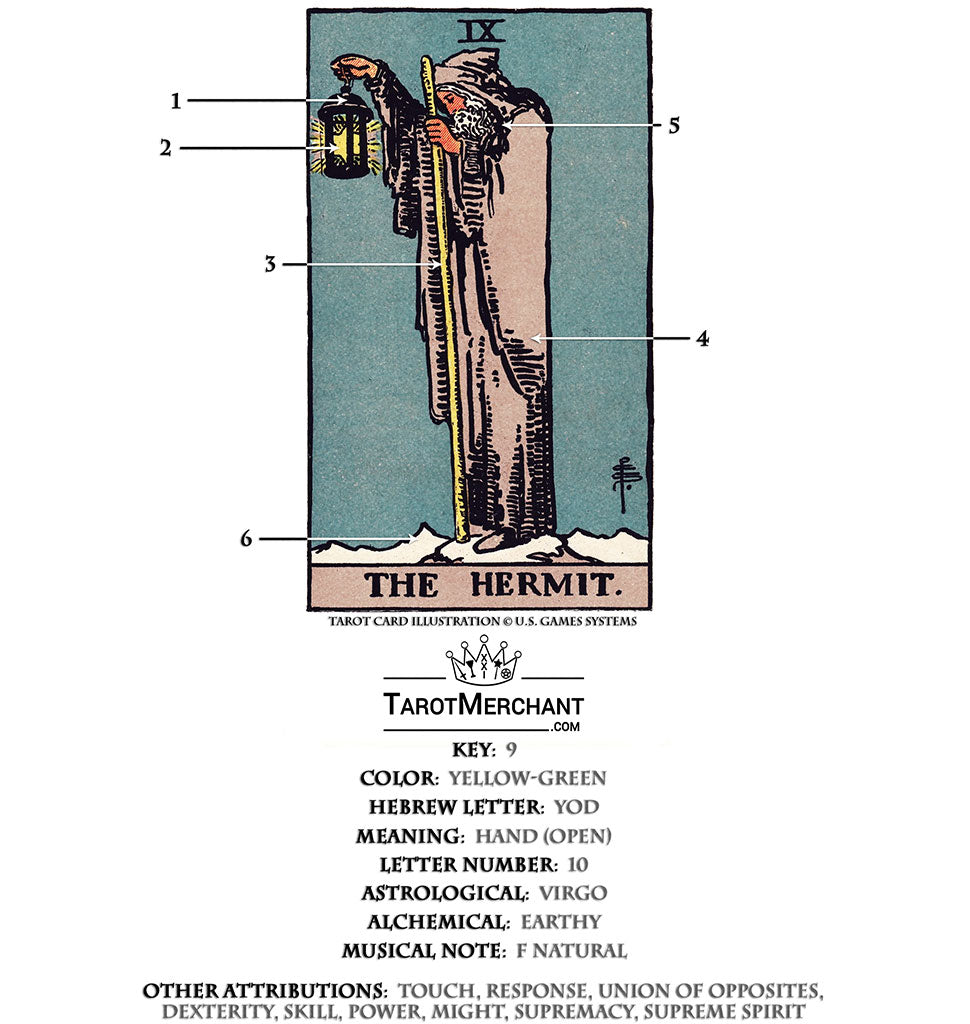The Hermit tarot card, represented by the Roman numeral IX, encapsulates profound themes of introspection, solitude, and spiritual enlightenment. Within the Christian perspective, its significance resonates deeply, offering a unique interpretation that intertwines spiritual growth with biblical teachings. This card is not merely a figure holding a lantern; it stands as a metaphorical guide through the shadowy depths of self-discovery, urging individuals towards a more profound connection with the divine.
At its core, the Hermit embodies periods of isolation often necessary for one’s spiritual evolution. In Christianity, this idea of retreat finds validation in the lives of numerous saints who sought solace in desolate places to fortify their faith. Just as Christ often withdrew to the wilderness for contemplation, the Hermit encourages believers to embrace their own moments of solitude. These moments are rich with potential, where one can foster a deeper understanding of divine will and inner purpose.
In a world brimming with distractions and cacophonous voices, the Hermit card serves as a poignant reminder that silence is not synonymous with emptiness. Rather, it is a fertile ground for nurturing one’s spiritual garden. Adolescents and adults alike can benefit from the Hermit’s message of reflection, using it to evanesce the noise of societal expectations, opening themselves to divine inspiration. This introspective journey mirrors the Christian concept of prayer and meditation, where the soul seeks clarity and guidance in the embrace of stillness.
Moreover, the lantern carried by the Hermit symbolizes the divine light—the illumination of truth. This ethereal beacon stands in stark contrast to the shadows, embodying the quest for holiness in a morally ambiguous world. In the Christian faith, Christ is often represented as the Light of the World, guiding believers through their spiritual quandaries. The Hermit, therefore, serves as a facilitator, helping individuals seek that light within themselves and illuminating the path towards righteousness.
Just like the parable of the Lost Sheep, where a single soul is cherished and sought after, the Hermit’s journey highlights the value of personal connection with God. This card signifies that every individual has a unique voyage, a personal odyssey towards finding their place within the grand tapestry of creation. It encourages believers to embark on a soul-searching quest, analogous to the introspective journeys of the prophets like Elijah, who fled to the wilderness to find solace and commune with God.
The symbolism woven into the Hermit also delves into the concept of wisdom acquired through experience. In the Christian worldview, wisdom is often considered a divine gift, and the Hermit embodies the pursuit of understanding through trials and tribulations. The inevitable struggles faced in solitude can lead to significant revelations about one’s faith, much like the journey of Job, who wrestled with despair yet emerged with a renewed and profound comprehension of God’s sovereignty.
In examining the unique appeal of the Hermit tarot card from a Christian lens, one cannot overlook the interplay between spirituality and mentorship. The Hermit represents wise counsel, acting as a teacher guiding seekers to discover their own truths. In the Christian tradition, this notion is mirrored in the roles of mentors, disciples, and great theologians such as Augustine of Hippo or Thomas Aquinas. Their writings encourage believers to seek knowledge and wisdom, serving as the lanterns in their own right, illuminating paths toward understanding God’s intentions for humanity.
Furthermore, this introspective journey, prompted by the Hermit, can cultivate virtues essential in Christian ethics, such as humility, patience, and resilience. These qualities are paramount for anyone striving to navigate the complexities of life while remaining anchored in faith. Embracing the teachings of the Hermit inspires a journey inward, a commitment to personal growth that aligns with core Christian values and alone yields a more profound relationship with God.
Another layer of complexity can be added by considering how the Hermit encourages believers to confront their fears. Isolation can breed loneliness and despair, yet it can also serve as an arena for spiritual warfare. Through prayer and contemplation, individuals can confront their doubts and anxieties as they seek the assurance of God’s love and presence. This battle, though daunting, aligns remarkably with the Christian narrative, where believers often find strength in vulnerability, echoing the acknowledgment in 2 Corinthians 12:9: “My grace is sufficient for you, for my power is made perfect in weakness.”
While the Hermit tarot card’s imagery may be interpreted through various cultural lenses, its poignant message remains steadfast: introspection is a conduit to enlightenment. Within the context of Christian teachings, this card unfolds a compelling narrative that champions the importance of individual spiritual journeys and the necessity of seeking divine truth in solitude. Embracing the lessons of the Hermit can inspire a more vibrant relationship with the divine, encouraging seekers to wield the light within themselves as they traverse through life’s intricacies.
The essence of the Hermit’s journey invites reflection, urging individuals to carve out moments of quietude to distill profound insights and nurture their faith. It serves as an emblem of hope—reminding believers that within solitude lies the potential for extraordinary spiritual awakening and that the path illuminated by divine light always leads back home.







Leave a Comment